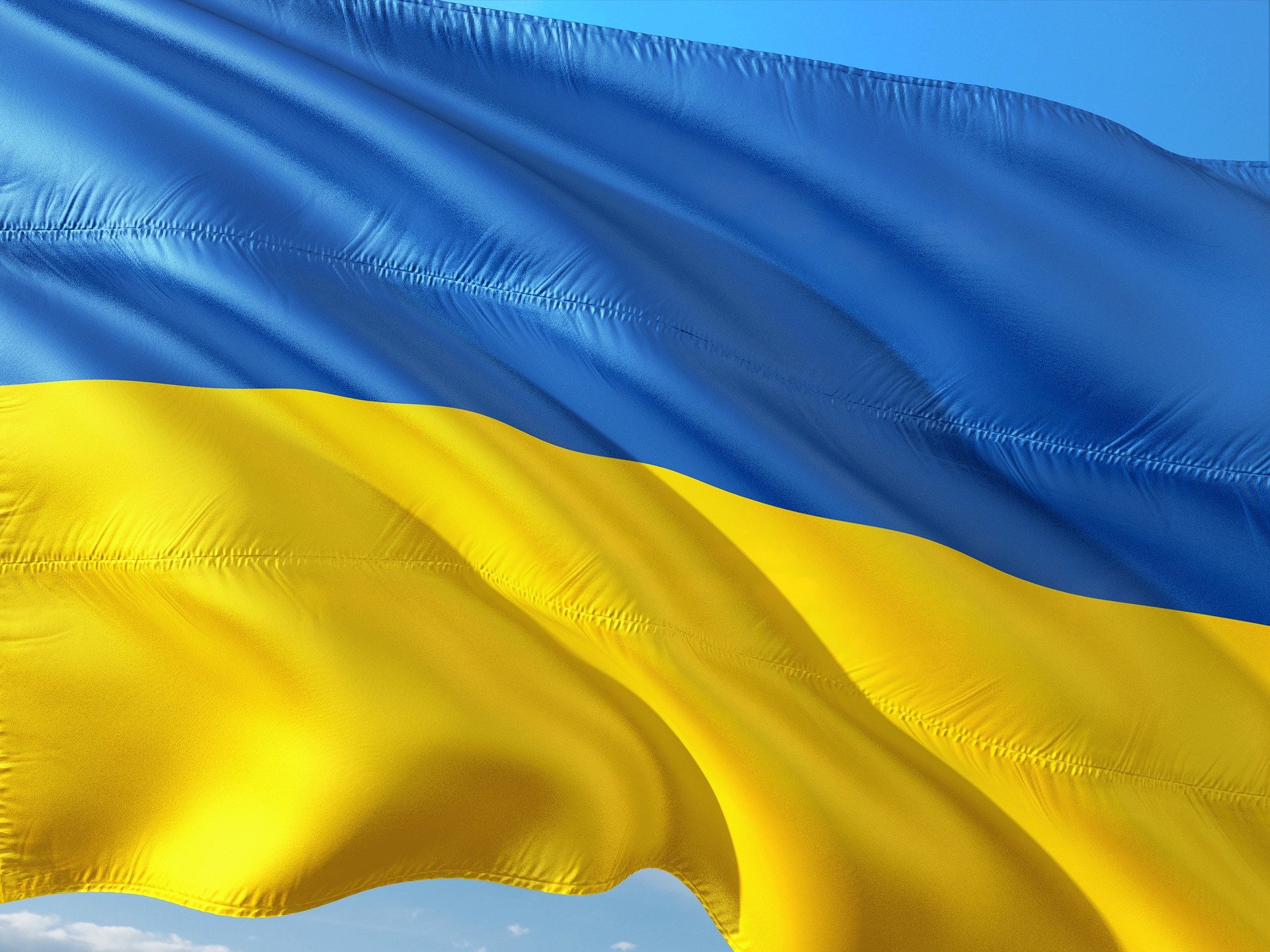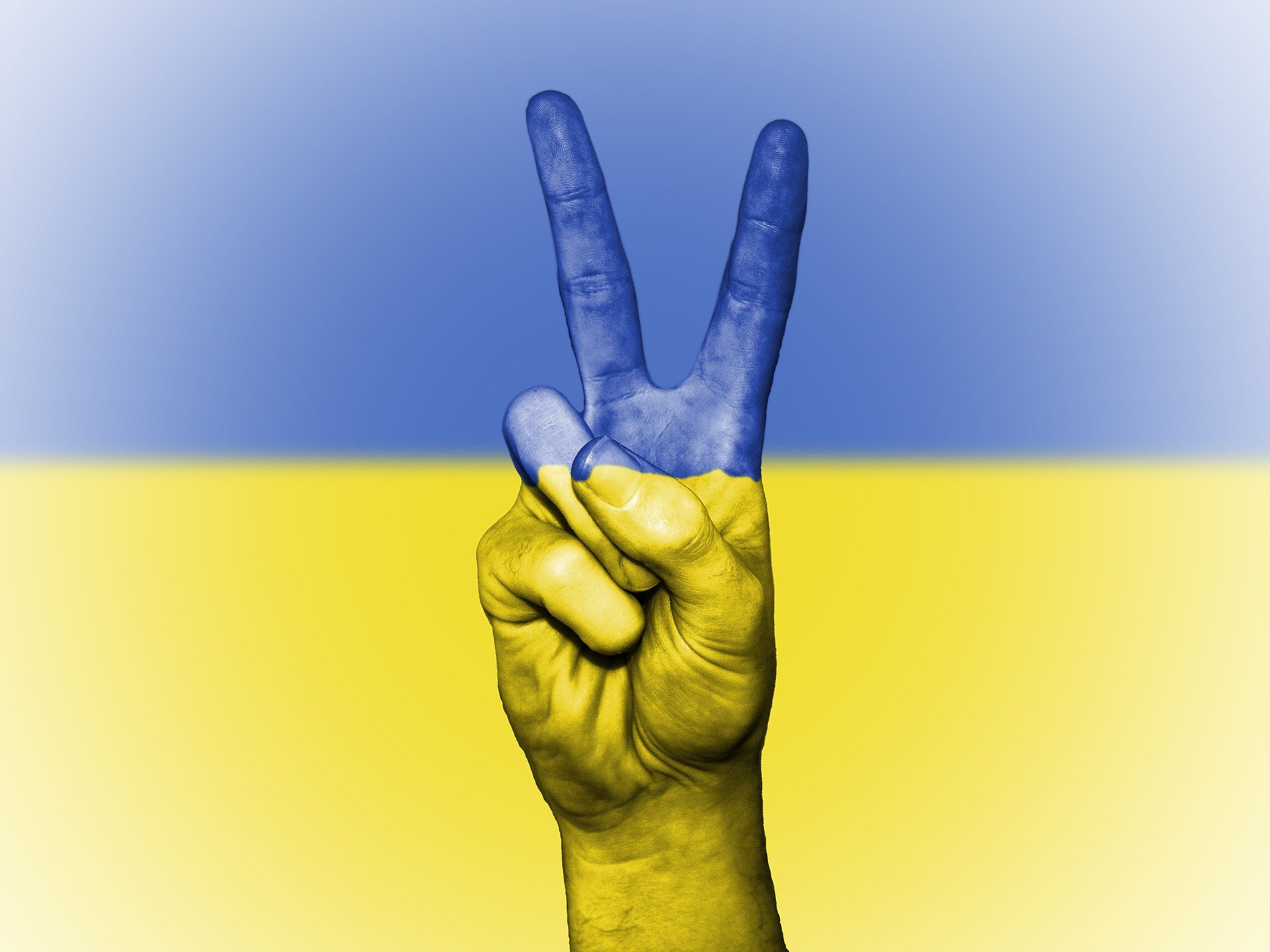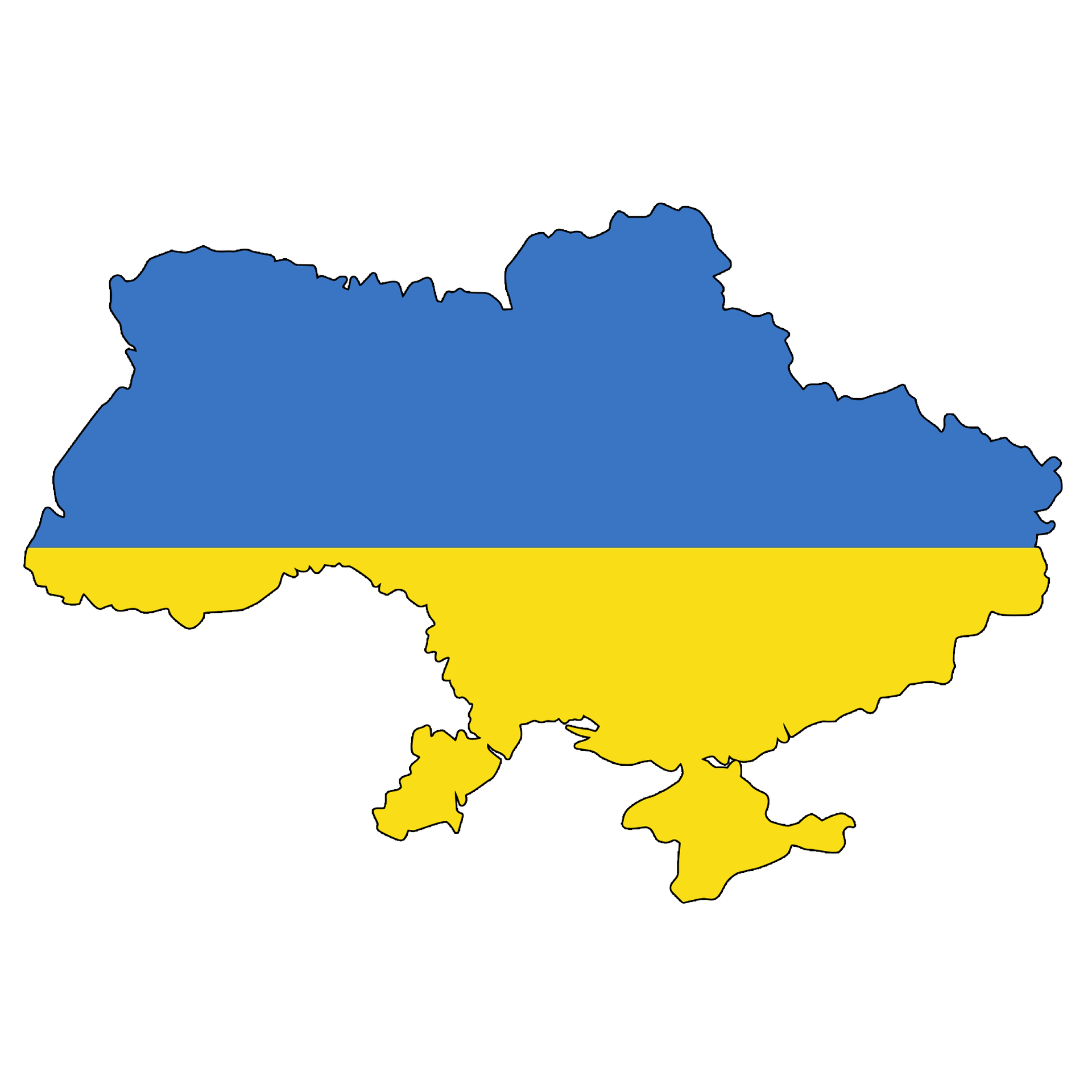On Saturday, 12 March 2022, the Act on Assistance to Ukrainian Citizens in Connection with the Armed Conflict on the Territory of that Country was published in the Journal of Laws. The provisions came into force on the date of publication and generally apply retroactively from 24 February 2022.
As stated in the information about the Act of 12 March 2022 on Assistance to Ukrainian Citizens in Connection with the Armed Conflict on the Territory of Ukraine, published on the website of the President of the Republic of Poland – according to the provisions of the Act, a Ukrainian citizen who, as a result of military actions, was forced to leave their country of origin and legally entered the territory of the Republic of Poland between 24 February 2022 and a date specified in a regulation issued by the Council of Ministers, and declares an intention to remain on the territory of the Republic of Poland, will be granted legal residence on that territory for a period of 18 months, counting from 24 February 2022. The stay of a child born on the territory of the Republic of Poland to a Ukrainian mother who fled the armed conflict will also be recognised as legal.
The provisions of the Act also regulate the issue of further legalisation of the stay of Ukrainian citizens. Ukrainians whose stay in the territory of the Republic of Poland is or has been recognised as legal will be granted a temporary residence permit. The permit will be granted upon application, once, for a period of 3 years, counted from the date of the decision. The Act also provides for access to the Polish labour market for Ukrainian citizens staying on the basis of the above-mentioned temporary residence permit. A Ukrainian citizen granted a temporary residence permit will be entitled to work on the territory of the Republic of Poland without the need to obtain a work permit.
The Act also contains regulations governing the situation of Ukrainian citizens who were present in Poland on the day the Russian Federation’s armed forces attacked Ukraine, i.e. on 24 February 2022. In this respect, the Act provides for the automatic extension until 31 December 2022 of the validity of the period of stay based on a national visa and the validity of the said visa and temporary residence permits, if the last day of the Ukrainian citizen’s legal stay fell within the period from 24 February 2022.
PESEL and trusted profile for Ukrainian citizens – new procedure
The Act provides for the assignment of a PESEL number to Ukrainians who came to Poland due to the armed conflict in Ukraine. A special procedure for obtaining a PESEL number upon an application containing a catalogue of basic data has been foreseen. This will be a simplified procedure enabling obtaining the PESEL number without the need to demonstrate the legal basis for possessing it. The application form will be published in the Public Information Bulletin of the minister competent for digital affairs. The application will be accompanied by a photograph of the person to whom the PESEL number is assigned, and their fingerprints will be taken. The municipal authority may provide the Ukrainian citizen with a free photograph. The PESEL number will be assigned after verifying the person’s identity based on available documents (including invalidated ones) such as passport, ID card, but also the Pole’s Card or driving licence.
For children, a birth certificate is also acceptable. In extreme cases, the PESEL number may be assigned based on a relevant declaration by the applicant. The minister competent for digital affairs will maintain a register of Ukrainian citizens to whom a PESEL number has been assigned in an IT system. The register will also collect data on the date of entry to the territory of the Republic of Poland and the date of the PESEL application. To facilitate access to online public services, it is envisaged that along with the assignment of the PESEL number, Ukrainian citizens will be able to obtain a trusted profile.
Legalisation of work
The provisions of the Act facilitate access to the Polish labour market for Ukrainian citizens who have received a temporary residence permit. To benefit from this solution, the entity entrusting work to a Ukrainian citizen is obliged within 14 days from the day the Ukrainian citizen started work to notify the competent labour office via the teleinformatics system – praca.gov.pl – about the employment. Failure to meet these conditions means that work without a work permit cannot be performed.
Furthermore, the Act allows Ukrainian citizens legally staying in the territory of the Republic of Poland to undertake and conduct business activity under the same conditions as Polish citizens. To ensure the security of business turnover, this right is conditional upon prior registration of the Ukrainian citizen in the PESEL register. In case of losing the right to legal stay on the territory of the Republic of Poland, the Ukrainian entrepreneur will be removed from the CEIDG (Central Register and Information on Economic Activity) according to the general rules.
Assistance for refugees
The Act also defines the rules for providing assistance to Ukrainian citizens by voivodes (provincial governors). According to the provisions of the Act, the voivode may provide assistance consisting of:
- accommodation;
- providing all-day collective meals;
- providing transport to accommodation places referred to in point 1, between them or to centres run by the Head of the Office for Foreigners or places where medical care is provided to Ukrainian citizens;
- financing travel by public transport and specialised transport intended for persons with disabilities to or between the places referred to in point 3;
- providing cleaning and personal hygiene products and other goods.
The above assistance may also be provided by other public administration bodies, units subordinate or supervised by public administration bodies, units of the public finance sector, and other public authorities.
Benefits for families providing assistance
The provisions of the Act foresee that any entity, especially a natural person running a household, who provides accommodation and meals to Ukrainian citizens fleeing the armed conflict, may be granted a financial benefit for that purpose for no longer than 60 days, granted upon application. The maximum amount of the financial benefit will be set by a regulation of the Council of Ministers.
Benefits for Ukrainian citizens
To provide material support to Ukrainian families and persons who arrived on the territory of the Republic of Poland directly from Ukraine due to military actions, the Act provides, inter alia, for:
- granting support within family benefits, child-raising benefit, family care capital, “Dobry Start” benefit, and subsidies for reducing parental fees for a child’s stay in a nursery, children’s club, or with a day carer. Benefits will be granted upon meeting the relevant conditions and criteria set out in laws and executive regulations governing these benefits;
- possibility of granting cash and non-cash benefits, under the terms and procedure of the Act of 12 March 2004 on Social Assistance. These benefits will be granted based on a declaration regarding personal, family, income, and property situation. This means that in the procedure for granting the aforementioned benefits, no family environmental interview will be conducted unless doubts arise regarding the content of the declaration. The competent authority for granting the benefits will be the commune of the person’s place of residence;
- assistance in the form of a one-time cash benefit of 300 PLN per person, intended for maintenance, especially to cover expenses for food, clothing, footwear, personal hygiene products, and housing fees. The application for the one-time cash benefit must be submitted in writing to the social assistance centre, or in the case of transformation of the social assistance centre into a social services centre – to the social services centre, of the commune competent according to the place of residence of the Ukrainian citizen;
- free psychological assistance. Assistance will be provided by the mayor, town mayor, or city president of the commune competent for the place of residence of the Ukrainian citizen, and ensuring psychological assistance will be part of commissioned tasks of the commune in the field of government administration and financed as a targeted subsidy from the state budget;
- granting medical care, including health care services on the terms and scope in which persons covered by compulsory or voluntary health insurance are entitled to benefits under the Act of 27 August 2004 on publicly funded health care services, excluding spa treatment and spa rehabilitation, as well as provision of medicinal products dispensed to beneficiaries within health policy programmes of the minister competent for health;
- granting funds from the State Fund for Rehabilitation of Disabled Persons for activities targeted at disabled Ukrainian citizens.
Academic staff and students
Regarding the rights of Polish citizens and Ukrainian citizens who are students, academic teachers, or scientific workers arriving from Ukraine, the Act provides, inter alia, that:
- persons holding Polish citizenship who, on 24 February 2022, were students of studies preparing for professions referred to in Article 68(1)(1–8) of the Act of 20 July 2018 – Law on Higher Education and Science at a university operating on the territory of Ukraine and have been admitted by a Polish university to studies in a corresponding field, shall pay fees for educational services related to part-time or foreign-language studies not exceeding the documented fees previously paid at the university operating on the territory of Ukraine;
- persons holding Polish citizenship as well as Ukrainian citizens who legally arrived in Poland directly from Ukraine between 24 February 2022 and a date specified in regulations issued under the Act, who declare that they are students of a specified year and level of studies at a university operating on the territory of Ukraine, and who do not possess documents confirming periods of study, exams, credits or professional internships issued by that university, may have their corresponding study periods recognised through verification of learning outcomes and will be able to continue their education;
- a Polish citizen who entered the territory of the Republic of Poland directly from Ukraine between 24 February 2022 and a date specified in regulations issued under the Act, or a Ukrainian citizen whose stay in Poland is recognised as legal under the Act, who declares that on 24 February 2022 they worked as an academic teacher at a university operating in Ukraine and hold the required professional title, academic degree, artistic degree or professor title and appropriate qualifications for the position, may be employed at a university as an academic teacher without a competition, as referred to in Article 119(1) of the Act of 20 July 2018 – Law on Higher Education and Science.
Education for pupils from Ukraine
The Act also provides solutions to ensure education and upbringing for children or pupils who are Ukrainian citizens. For this purpose, additional locations for conducting didactic, educational, and care activities may be established, organisationally subordinated to schools or kindergartens. To facilitate the organisation of work in a school where such an additional class is created to provide education and upbringing for children and pupils arriving from Ukraine to the territory of the Republic of Poland, the Act provides that in the school year 2021/2022, the school principal may assign a teacher, with their consent, extra hours exceeding half of the full-time workload to work with these children and pupils.









